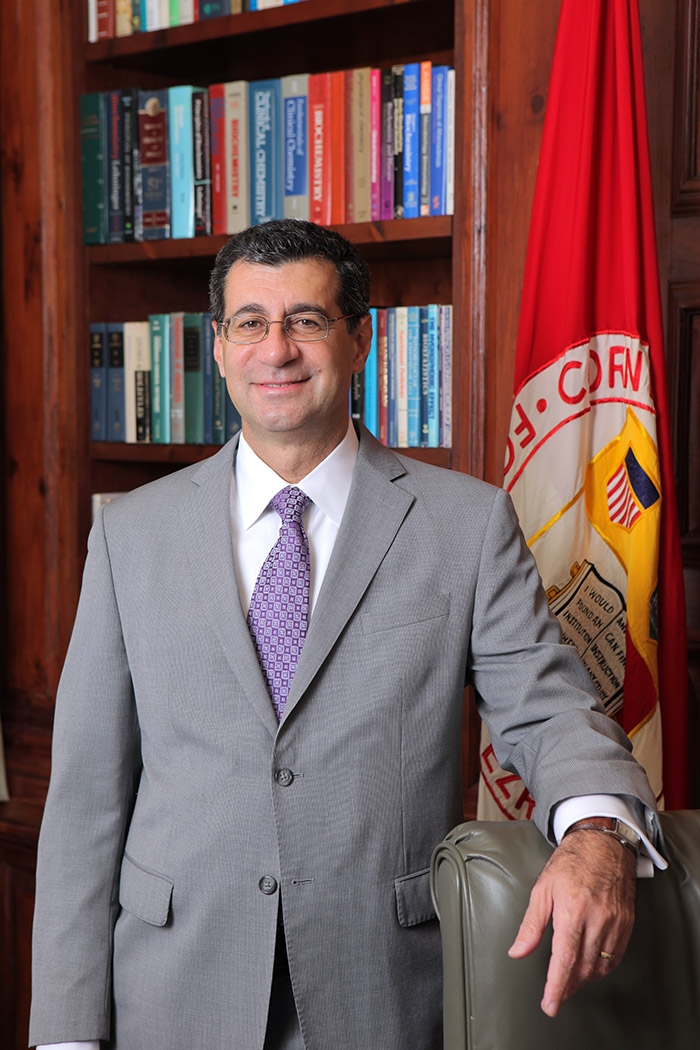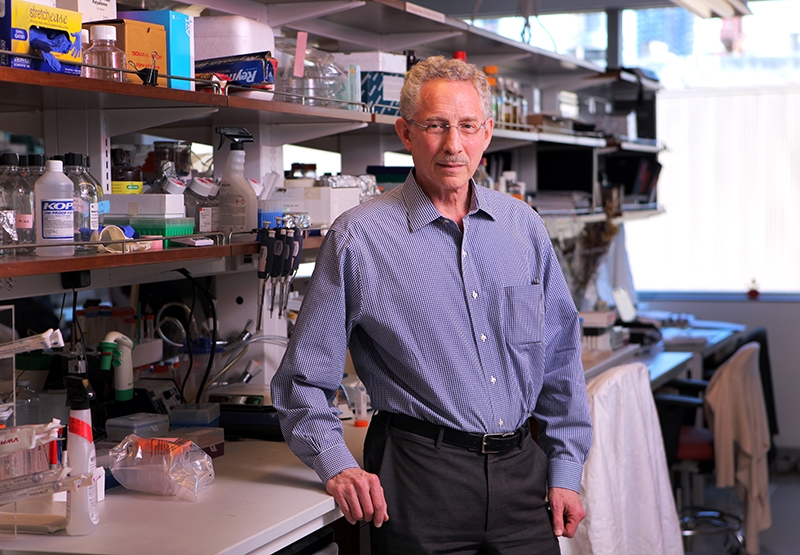Two Weill Cornell Medicine faculty members whose research focuses on tuberculosis and heart disease — both among the most lethal conditions globally — were elected to the American Academy of Arts and Sciences.
Dr. Carl Nathan, chair of Weill Cornell Medicine's Department of Microbiology and Immunology, and Dr. David Hajjar, dean emeritus of the Weill Cornell Graduate School of Medical Sciences and former executive vice provost of Weill Cornell Medicine, are among 211 other scholars, scientists and worldwide leaders — including two others from Cornell University — across a variety disciplines who received the honor.

Dr. David Hajjar
Founded in 1780 by James Bowdoin and John Adams, who went on to become the second president of the United States, the American Academy of Arts and Sciences is one of the oldest policy research centers and learned societies in the country. Its 4,600 fellows and 600 foreign honorary members are joined this year by a class that includes Temple Grandin, a prominent spokesperson for people with autism, novelist Colm Toibin, and former Botswanan President Festus Mogae. All members are asked to contribute to academy publications and help guide the academy when it's deciding how to respond to far-reaching, worldwide challenges.
For Dr. Nathan, who is the R.A. Rees Pritchett Professor of Microbiology at Weill Cornell Medicine, that likely means weighing in on discussions about how we can better combat tuberculosis and why we must develop new antibiotics — both areas of specialty for him.
"I'm honored to be included among this diverse and talented group of people, and to get the opportunity to contribute to the American Academy of Arts and Sciences' important causes," said Dr. Nathan, a member of the National Academy of Sciences and the National Academy of Medicine whose contributions to the fields of immunology and microbiology were celebrated in a special symposium hosted April 19 in the Belfer Research Building. "I consider it a mission to educate people — including doctors, medical students, policymakers and other leaders — on the pressing threat of antibiotic-resistant bacteria. I hope that this designation helps me to do that."
Dr. Hajjar, who is also a professor of pathology and biochemistry, is recognized as an international expert in cardiovascular disease. Dr. Hajjar studies a form of heart disease called atherosclerosis, which is an inflammatory condition characterized by the accumulation of cholesterol-laden plaques on the arterial wall.
"It's a privilege to be recognized by the American Academy of Arts and Sciences, and I'm eager to contribute my broad knowledge of heart disease and its root causes to help lessen the global impact of this condition," said Dr. Hajjar, who has also been honored for his work by the American Heart Association, the Andrew Mellon Foundation, and the American Chemical Society. "As we look into the future, the number of deaths associated with cardiovascular disease is expected to grow exponentially. If we can develop better diagnostic tools, treatments and public health policies for this condition, it could make a huge and positive impact on global healthcare and finances. In this regard, I hope to continue working with the Brookings Institute as a senior fellow on science policy issues as they relate to human health and disease."
The academy will induct this year's honorees during a ceremony on Oct. 8 in Cambridge, Mass.

